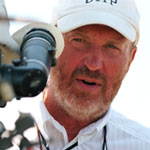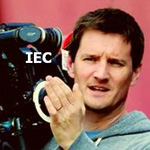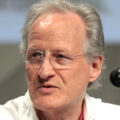An Introduction to our Filmmaking Masters

Length: 2 Years

Experience: Hands-on, intensive, studio environment. Surrounded by filmmakers in the heart of London, working on at least ten films

Studies: Nine craft areas: Directing, Screenwriting, Producing, Cinematography, Sound, Editing, Production Design, Music, Screen Studies

Opportunity: Connected staff, visiting lecturers and alumni. Have your work screened at film festivals and build your global network
MA filmmaking is an intensive, hands-on, 2-year program. By the end, our students are fully trained in all aspects of filmmaking. Their portfolio will contain credits for directing, cinematography, editing, producing on at least 10 films. Student films are screened at over 180 festivals, winning many prestigious prizes including the Cannes Palme d’Or for Best Short Film.
We throw our students right into the process of producing films — starting small and gradually increasing the challenges. Our students learn quickly and efficiently by developing creative solutions to the aesthetic and practical problems that naturally arise in the complex process of making a film. Critical feedback, supplied by colleagues, teachers and professional practitioners propel students to grow, refine their skills, and critical judgement.
Simply soaking in the highly creative school atmosphere, and participating in our vibrant film community in London, stimulates learning — and this learning continues all day, often through the evening, and flows between the sets and locations, the viewing theatres, editing suites, the coffee bar and back again, all term.
Competitive Edge
All LFS students learn important filmmaking skills, and practise them in a working unit. There is no film career which is not greatly enriched by an active practical knowledge of the other specialisations. This makes an LFS graduate stand out from future professional colleagues with a single specialisation, at any level.
Student Work
Curriculum
Two-year program — Three Units across six terms
UNIT 1 – LANGUAGE (IMAGE, MEANING, STYLE)
UNIT 2 – PRACTICE (NON-FICTION AND FICTION)
UNIT 3 – SYNTHESIS (INDUSTRY AND INDEPENDENTS)
Starting with a thorough grounding in the basics of filmmaking and the production of a three and a half minute, 16mm, black and white, mute film in unit 1, students progress through two more units that progressively increase in complexity and build proficiency across all aspects of filmmaking while developing their artistry, technical and storytelling skills – all supported by the term tutors and mentors.
Students are taught to look at film history, in varying critical contexts, but most importantly as the outcome of practical strategies that to use for framing, criticizing and developing students’ own take on screen storytelling.
They develop personal work, students get the opportunity to test it out freely with colleagues, teachers and professional practitioners in workshops designed to connect ideas and outcomes and in which work is criticized without applying any further restriction than growing the students’ own judgement and consciousness of effect and context.
In the film exercises, students shoot own scripts, directed in their own way. The content of all films is fully discussed and criticized, but ultimately the students have complete freedom of expression. This is an opportunity to exercise their creative abilities, to see their ideas brought to life, with professional actors, on film, and under production conditions appropriate to the developing skills of the crew, culminating in the Alexa studio film of the standard industry production.
The film exercises are programmed by the School, and are tightly scheduled, requiring the students to learn to work under time discipline. Crews are compact, and consequently there is always need for assistants from the lower terms. Up to sixty films are made each term, which means that whenever students are not busy with their own projects, their services are in demand on many others. This creates a constant sense of excitement, a constant presence of filmmaking, which becomes the atmosphere and life of the School, a tremendous motivating force.
At the end of each term, each unit presents to an industry audience the work achieved so far. Culminating in a graduation showcase where the work achieved so far is shared with an industry audience and can be supported for a run on the film festival circuit.
Students are continually learning from each other and from the immense range of practical and aesthetic problems the different films offer. This process continues all day, often through the evening, and flows between the sets and locations, the viewing theatres, editing suites, the coffee bar and back again, all term.
Studying Film in London - A Truly Immersive Experience
Go almost anywhere in London and you will see signs of a vibrant film industry. The city has so many iconic landmarks that show up in a huge variety of blockbusters. Just think of how often you’ve seen the Tower Bridge or Big Ben or Buckingham Palace on the big screen. And it’s not just the city’s icons that get screen time; the city’s skyline, its atmosphere, its vibrant life, its history, all make London an incredibly attractive setting for a film and setting a mood. Even lowly railway stations can become iconic, think of King’s Cross Station, now a destination spot, due to Harry Potter.





Alumni
Our students build amazing careers. Want to join them?


Hauke Richter
Art Director
Notable Work:
Treadstone (2019)
Games of Thrones (2014-2019)
Black Mirror (2017)


Roger Pratt
Cinematographer
Notable Work:
Harry Potter and the Goblet of Fire (2005)
Chocolat (2000)
Twelve Monkeys (1995)


Jo Willems
Cinematographer
Notable Work:
American Gods (2017)
The Hunger Games trilogy (2013-2015)
Hard Candy (2005)
